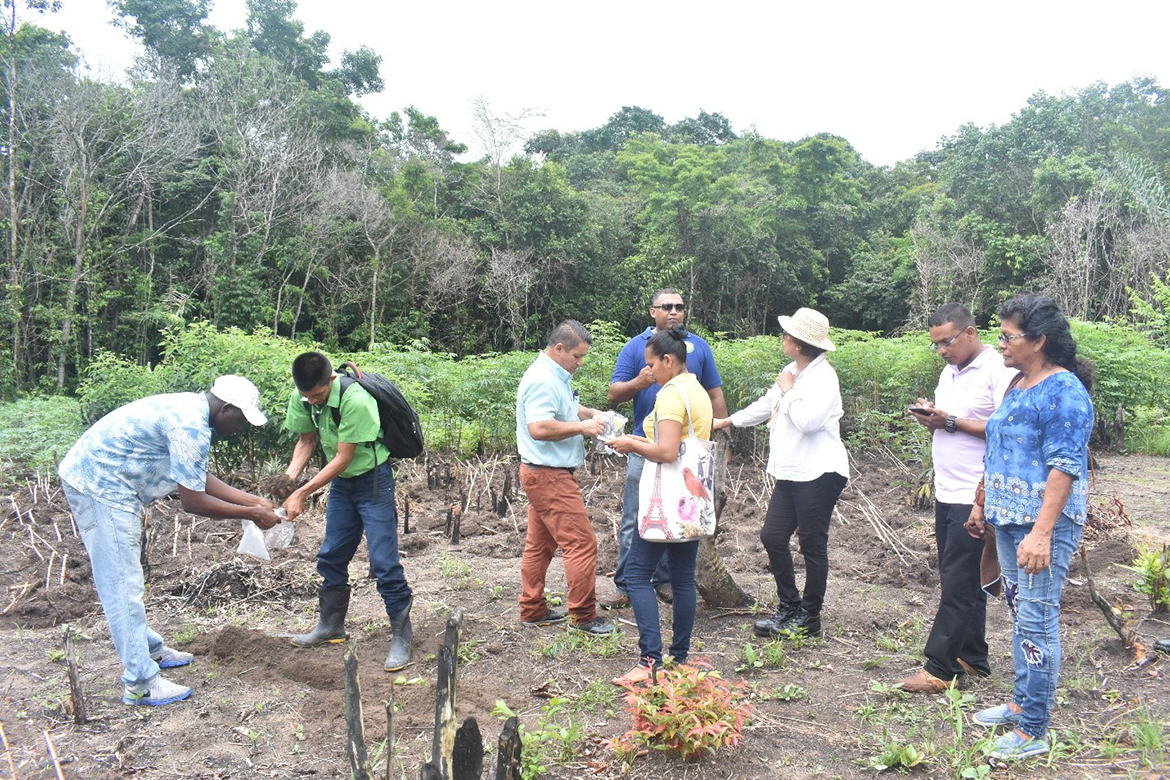Close to 50 farmers in the Moruca Sub District, Region One recently benefited from technical advice for the planting of cassava and coffee during a meeting with a team of agricultural specialists and junior Minister of Indigenous People’s Affairs Valerie Garrido-Lowe.
The two-day engagement which commenced last Thursday saw the Ministry partnering with the National Agriculture Research and Extension Institute (NAREI) and Brazil’s Stem Integrated Production in Agribusiness, (SIPA) to share technical knowledge with farmers who will soon be engaged in the production of Ground Robusta Coffee and cassava flour to supply the local market and later the international market.
In a statement issued on Monday, the Ministry explained that some fifteen farmers from Santa Rosa Village will be engaged in the coffee project, while thirty-five will be involved in the cassava flour project in Kwebana.
It was noted that the team visited seventeen farms in the area and was able to engage farmers to whom they provided technical knowledge as it relates to planting techniques and pest control which will vastly improve the percentage of yields they currently enjoy.
Soil samples were collected from each farm and a complete analysis will be conducted and results as well as recommendations will be forthcoming shortly, the statement said.
NAREI’s researcher, Premdat Beecham, following the visits to the farms commended the effort put into the project as he said, “We need to move in that direction since value addition is one of the most important things because we cannot do without adding value to it and taking into consideration the schools feeding programme and taking into consideration the limited resources that we have in terms of commodities going into these areas; the 60 percent wheat flour mixed with the 40 percent cassava flour is one of the main products that will go to these schools feeding programmes and even the army and police can take advantage of this programme.”
He added that based on what he has seen in Kwe-bana, farmers are equipped to deal with this and as such he sees the project yielding success particularly since it will have the backing of NAREI.
Similarly, SIPA’s Consul-tant, Carlos Alberto De Medeiros, expressed confidence that both projects will succeed since it has the necessary climate, the work force and government’s commitment, which are all critical to its success.
Garrido-Lowe, who is responsible for the introduction of these projects reiterated that the intention is to ensure that these planned initiatives are economically viable since they will be value added products.
“The hinterland has great prospects in agriculture and tourism and our people are willing to work to raise their standard of living and they are not afraid to try new things. The Pakaraimas Flavours Sun-dried Tomato Ketchup is testimony to that fact; our people are hardworking and when they make up their minds to do something for their benefit, they can deliver for themselves and others. All they need is the financial support which Government has already committed to, for both the cassava flour and the ground coffee production, the technical assistance in the farms and, of course, training in the value-added process. My job really is to put things together and to motivate them, and believe in them… so I get easy job,” she said.





